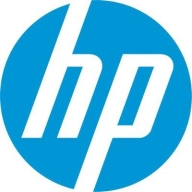

HP Wolf Security and Microsoft Defender for Endpoint are two competing cybersecurity solutions. Despite HP's strengths in pricing and support, Microsoft Defender's robust feature set makes it a superior choice for those seeking advanced functionality.
Features: HP Wolf Security is noted for its strong threat containment, hardware-enforced security, and focus on isolating potential threats. Microsoft Defender for Endpoint excels with its advanced threat detection, response capabilities, and comprehensive security posture.
Room for Improvement: HP Wolf Security could enhance its integration capabilities and incident response mechanisms, and streamline management. Microsoft Defender for Endpoint could improve by simplifying its configuration process, reducing the number of false positives, and enhancing user interface intuitiveness.
Ease of Deployment and Customer Service: HP Wolf Security is highlighted for its straightforward deployment and responsive customer service. Some users find Microsoft Defender for Endpoint’s deployment process more complex, though its customer service is well-regarded for solving issues effectively.
Pricing and ROI: HP Wolf Security is frequently praised for being cost-effective with a good return on investment due to its competitive pricing. Microsoft Defender for Endpoint, though higher in initial setup costs, is valued for its extensive features, justifying the investment in the long term.
| Product | Market Share (%) |
|---|---|
| Microsoft Defender for Endpoint | 8.1% |
| HP Wolf Security | 5.9% |
| Other | 86.0% |

| Company Size | Count |
|---|---|
| Small Business | 3 |
| Large Enterprise | 5 |
| Company Size | Count |
|---|---|
| Small Business | 80 |
| Midsize Enterprise | 40 |
| Large Enterprise | 92 |
HP Wolf Security is a comprehensive cybersecurity solution that bolsters your organization's cyber-resilience on multiple fronts. With its full-stack security approach, it ensures layered protection from hardware to the cloud, providing a robust defense against cyber threats. HP Wolf Security introduces endpoint isolation, a cutting-edge feature that effectively halts threats that may go unnoticed by Next-Generation Antivirus (NGAV) and Endpoint Detection and Response (EDR) systems. Moreover, it extends its security coverage to printers, equipping them with advanced detection and self-healing capabilities to further safeguard your digital ecosystem. This integrated solution streamlines IT and security risk management, resulting in fewer alerts and false positives, and reduces the time and effort required for endpoint incident analysis and remediation. Notably, HP Wolf Security prioritizes productivity, allowing you to manage risk without disrupting the user experience, enabling worry-free work from anywhere, and offering rapid IT disaster recovery at scale.
Microsoft Defender for Endpoint is a comprehensive security solution that provides advanced threat protection for organizations. It offers real-time protection against various types of cyber threats, including malware, viruses, ransomware, and phishing attacks.
With its powerful machine-learning capabilities, it can detect and block sophisticated attacks before they can cause any harm. The solution also includes endpoint detection and response (EDR) capabilities, allowing organizations to quickly investigate and respond to security incidents. It provides detailed insights into the attack timeline, enabling security teams to understand the scope and impact of an incident.
Microsoft Defender for Endpoint also offers proactive threat hunting, allowing organizations to proactively search for and identify potential threats within their network. It integrates seamlessly with other Microsoft security solutions, such as Microsoft Defender XDR, to provide a unified and holistic security approach. With its centralized management console, organizations can easily deploy, configure, and monitor the security solution across their entire network.
Microsoft Defender for Endpoint is a robust and scalable security solution that helps organizations protect their endpoints and data from evolving cyber threats.
We monitor all Endpoint Protection Platform (EPP) reviews to prevent fraudulent reviews and keep review quality high. We do not post reviews by company employees or direct competitors. We validate each review for authenticity via cross-reference with LinkedIn, and personal follow-up with the reviewer when necessary.